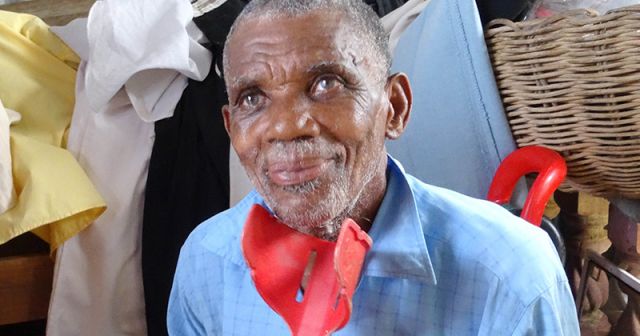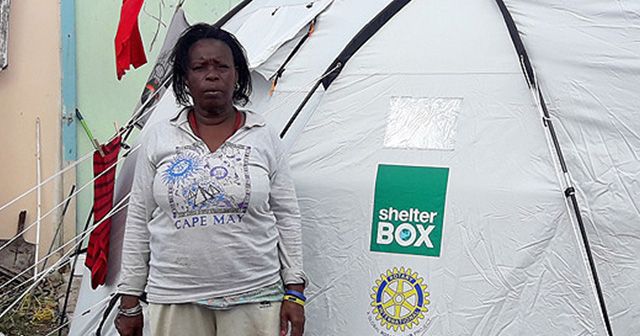WHAT?
What exactly is a hurricane?
A hurricane is a cyclonic weather system that forms in the tropics and has sustained wind speeds of more than 74 miles per hour.
What is the difference between a hurricane, a typhoon and a cyclone?
Hurricanes, typhoons and cyclones are all tropical storms. The only difference is where they form.
Hurricanes form in the tropical Atlantic and the Eastern Pacific. Typhoons form in the West Pacific and cyclones form south of the equator, off the coast of places such as Australia and Madagascar.
The word hurricane may have originated from either Hurakan, the ancient Mayan god of wind, storm and fire, or Huracan, the god of evil, in the Caribbean language of Taino.
HOW
How do hurricanes form?
Hurricanes are delicate and need specific conditions to form and persist. The sea temperature needs to be at least 27°C, which is why they only form in the tropics.
The air above the sea heats up via convection and this warm, moist air rises. As the atmosphere heats up, the pressure changes and lowers at the surface.
Sea temperatures this year are already as warm as they were last year.
Help us be prepared for the upcoming hurricane season by donating today
Wind from the surrounding areas then rushes in to fill the space left by this area of low pressure, while the earth’s rotation causes the wind to spiral and become cyclical.
The eye of the storm tends to form once the wind speed reaches 74 miles per hour – the point at which a tropical storm is reclassified as a hurricane.
Hurricanes are fuelled by high humidity, so a change of wind or dry air can make them weaken and eventually dissipate.
How often do hurricanes occur?
Hurricane season is from June until November. Usually, there will be between six and eight hurricanes spread across this period.
Having three or more simultaneous hurricanes usually only happens once in a decade.
How do hurricanes get their names?
Since the early 1950s, hurricanes have been named after women.
In 1980, mens names were introduced, and now the storms are named alphabetically, alternating between male and female names.
The names are repeated every six years, but if a storm is particularly severe, then the name is retired from use.
THE IMPACT
What impact can hurricanes cause?
In the simplest terms, hurricanes pose a severe threat to life and property.
In this type of situation, people need to decide whether to stay in their homes or head to safer ground. In some cases, there is nowhere safe to go, and many people worry about leaving their homes for fear of looting.
With a storm as strong as Hurricane Irma at its peak, very few buildings could withstand it – you’d need a reinforced concrete building to survive unscathed.
Floodwater is also a major danger. Aside from the damage it could cause to buildings and infrastructure, the main cause of death in a hurricane is drowning due to storm surges and flooding.
What is the damage from Hurricane Irma, a Category 5 hurricane, likely to be in the Caribbean?
It is likely to take months, if not years for some of these nations to recover and will very likely knock economic progress back by several decades.
This could even cause a decline in population in some areas, if people cannot face the prospect of enduring another massive hurricane.
Sadly, the people who are most likely to be affected are those who are poorer. They tend to have less durable houses and less means to rebuild again.
What are the main priorities once a hurricane has hit?
Dealing with the aftermath of a hurricane can be very challenging. Whole communities can be destroyed, from people’s homes to vital infrastructure such as roads, communication lines, power and medical supplies.
In the worst case, this can lead to the breakdown of law and order. Survival mode can kick in, and without basic needs such as food, water and shelter, people can resort to looting and violence.
Providing these basic needs is essential – once these have been met, it removes uncertainty and makes people feel at ease.
This is where ShelterBox comes in. By providing emergency shelter, people can have somewhere safe and warm to stay, which makes the process of recovery a whole lot easier.
Find out more about our response to Hurricane Irma and our teams on the ground in the Caribbean.
Irma is so powerful that it has, on its own, generated more energy than 17 entire Atlantic hurricane seasons in the satellite era (since 1966).
STAYING SAFE
How can you prepare for a hurricane?
If people are unable to evacuate their homes during a hurricane, then it’s really important to make homes as secure as possible before the storm hits.
Usually, people receive warning of a hurricane around three days in advance, in which time they should:
- Prune trees to stop loose or weak branches being torn off.
- Tie down loose objects.
- Board up any glass and put strong shutters on windows.
- Make the house as solid and secure as possible.
- Fill any cracks or spaces to stop the wind getting in – the pressure of the wind during a hurricane can force roofs off.
- Find a windowless room to hunker down in.
STORIES OF RECOVERY
GIVING HOPE IN DOMINICA

81-year-old Simon has lived in Wesley in northeast Dominica for more than 60 years. When Hurricane Irma hit Wesley in September 2017, Simon’s peaceful life was uprooted.
The hurricane was the most powerful storm ever recorded in the Atlantic Ocean and Simon, along with two million other people, was exposed to winds in excess of 185mph.
But the devastation didn’t stop there. Hurricane Maria hit as a category 5 storm with winds of 282kmph just days later.
Our ShelterBox team helped Simon rebuild the roof of his house so he could be safely sheltered once again. He also received a ShelterKit to help him fix his broken bed.
GIVING HOPE IN BARBUDA
Amy lived on Barbuda with her two sons, Ivan and Clarence, before Hurricane Irma hit the island.
The category 5 hurricane caused catastrophic damage throughout the island. The wind reached speeds of 295 kmph, while homes, crops and livelihoods were totally destroyed.
‘On the night of the hurricane I was with my neighbour. It was midnight. We weren’t prepared. It was scary. It was a night I will never forget. Never. Never.’
We provided Amy with a tent for her and her family to stay in until they can start rebuilding their home.

